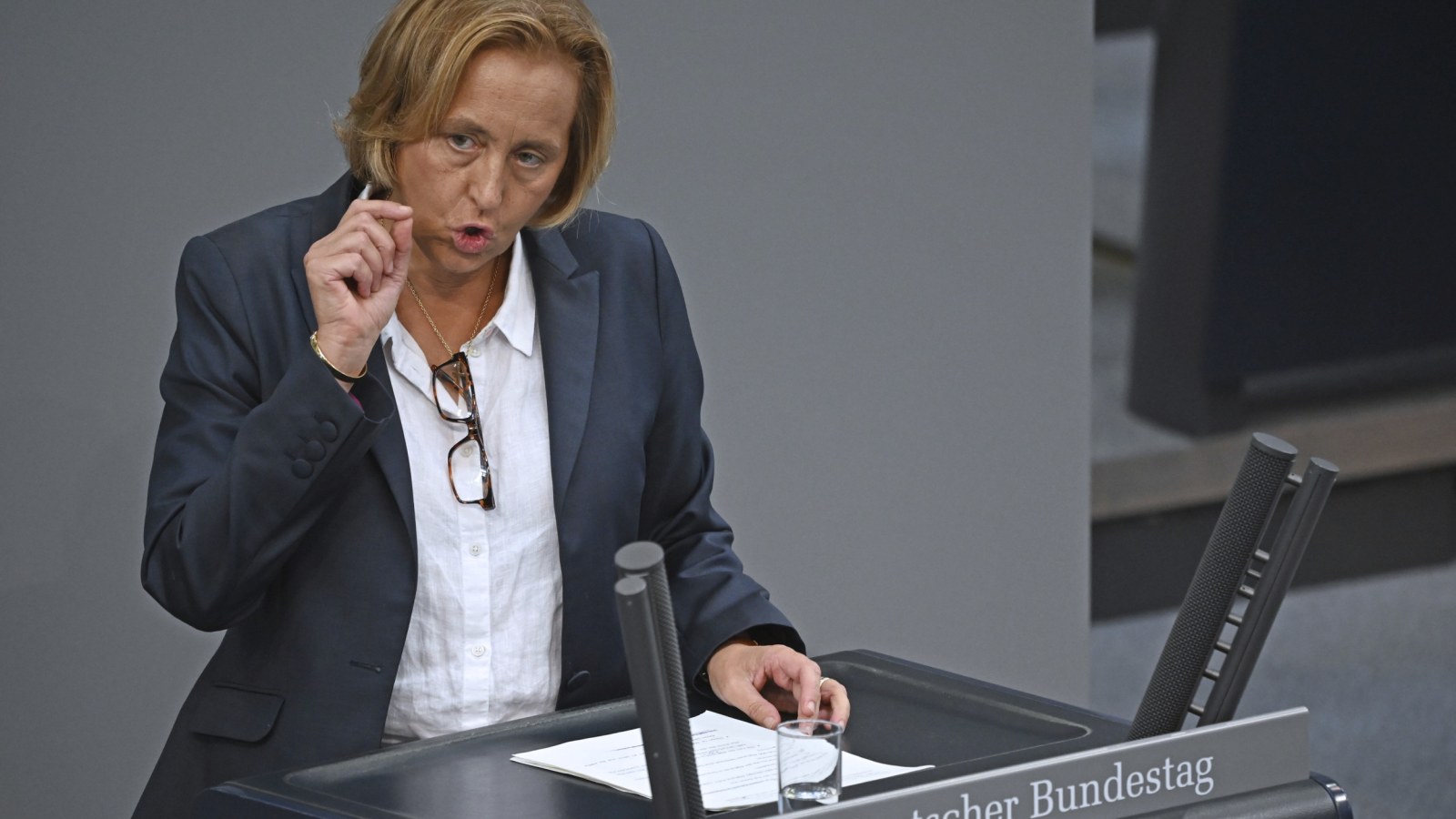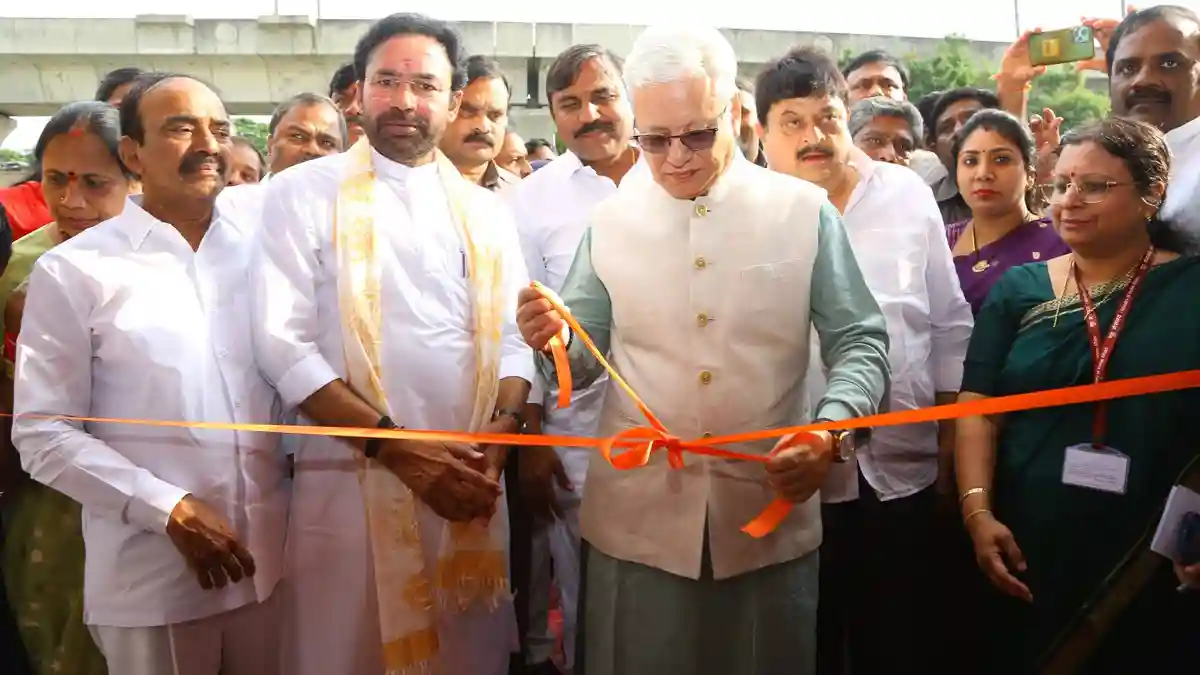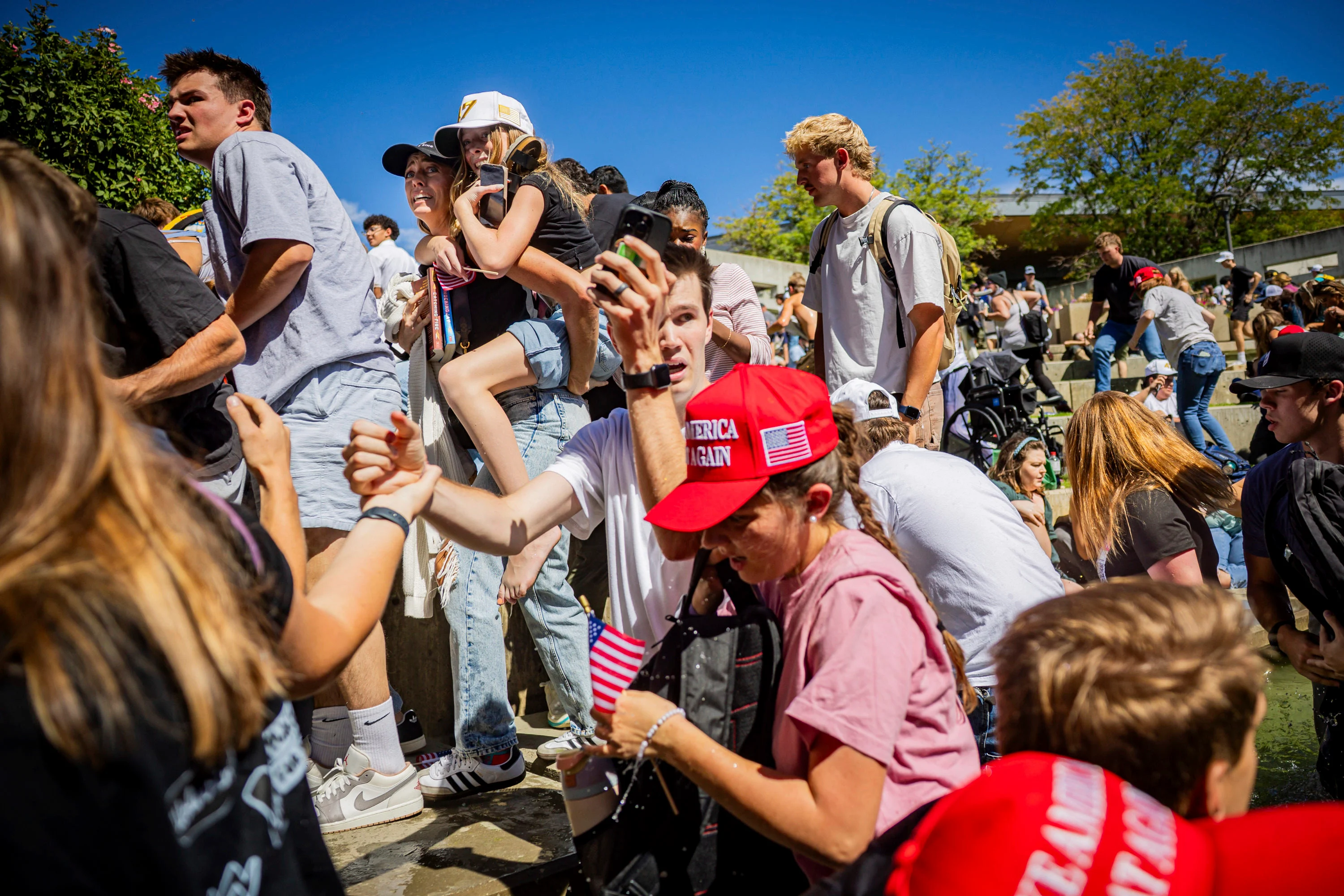By Gabe Whisnant
Copyright newsweek

A senior leader of Germany’s far-right Alternative for Germany (AfD) party met with officials in the Trump administration this week, according to reporting by Politico.Beatrix von Storch, deputy leader of the AfD, held talks at the White House along with Joachim Paul, an AfD politician. The pair met with representatives from the U.S. National Security Council, the State Department, and the office of Vice President JD Vance. An AfD official, granted anonymity to discuss the meetings, told Politico the delegation did not meet directly with Vance.Newsweek has reached out to the White House via email on Monday night for comment.Why It MattersThe visibility of AfD figures in Washington underscores the challenges facing Germany’s governing parties ahead of elections next year. The AfD has surged in the polls, capitalizing on public frustration with inflation, migration, and energy costs under Chancellor Friedrich Merz’s center-right Christian Democratic Union. The AfD’s international outreach, especially to figures close to Trump, has raised concerns among European diplomats that far-right parties are increasingly coordinating across borders.The trip is the latest episode in a budding transatlantic relationship. It comes months after Vance drew attention at the Munich Security Conference in February when he openly questioned Germany’s so-called political “firewall” — an agreement among mainstream parties never to include the AfD in governing coalitions.What To KnowThe recent discussions reportedly focused on election law and democratic participation. AfD officials characterized Paul’s case — his candidacy in a German mayoral race was disqualified by a court earlier this year — as an example of what they claim are restrictions on political freedoms in Germany. One AfD official told Politico that U.S. interlocutors voiced concern about limits on free speech, noting that “if something like this happened in the U.S., candidates couldn’t simply be removed from lists.”In February, Vance met with AfD co-leader Alice Weidel during the Munich gathering, a move that drew sharp criticism from German officials who say the firewall is essential to preventing a repeat of the country’s Nazi past. Mainstream German parties maintain the AfD promotes extremist positions, including opposition to immigration and skepticism of European integration.The meetings in Washington also reportedly touched on international networks of the far right, including the case of Eduardo Bolsonaro, son of Brazil’s former president Jair Bolsonaro. Eduardo Bolsonaro, who was recently sentenced in absentia to 27 years in prison in Brazil for attempting to overturn the 2022 election results, has been living in the United States in self-imposed exile. He has forged ties with right-wing movements in both Europe and America and is frequently cited as an ally by AfD leaders and other populist figures.On Sunday, Chancellor Friedrich Merz’s party placed first in municipal elections in Germany’s most populous state, but the standout gains came from the far-right AfD, which nearly tripled its support from five years ago. Final results Monday showed Merz’s CDU winning 33.3% in Sunday’s contests for councils and mayors in North Rhine-Westphalia, a western state of about 18 million people. The center-left Social Democrats, longtime dominant in the region and now Merz’s partners in a struggling national government, fell to 22.1%.AfD captured 14.5% — up 9.4 points — underscoring its growing strength in western Germany after traditionally thriving in the poorer east; the party won 20.8% nationally in February to become the largest opposition bloc, including 16.8% in North Rhine-Westphalia, prompting co-leader Alice Weidel to hail Sunday’s result as “a huge success.”What People Are SayingStefan Marschall, a political science professor at Duesseldorf’s Heinrich Heine University, told the Associated Press that AfD “is in a position to organize the discontent” with the traditional mainstream parties: “It succeeded in that, particularly in the regions that feel left behind,” he told Phoenix television.He noted that AfD didn’t even field candidates everywhere on Sunday, which meant that its support was “somewhat underrated” by the outcome.In an apparent reference to the catchword, Vance said in February in Munich: “Democracy rests on the sacred principle that the voice of the people matters. There’s no room for firewalls.” “No voter on this continent went to the ballot box to open the floodgates to millions of unvetted immigrants,” Vance also said.Merz wrote on X Sunday, “We are addressing the problems at national, state and municipal level with determination. The solutions are not on the fringe, but in the center — with answers for our economy, migration and security.”What Happens NextVon Storch and Paul are expected to remain in Washington for several more days for additional meetings, including follow-up sessions at the State Department, according to Politico.Update: 9/15/25, 7:02 p.m. ET: This article was updated with new information and remarks.



